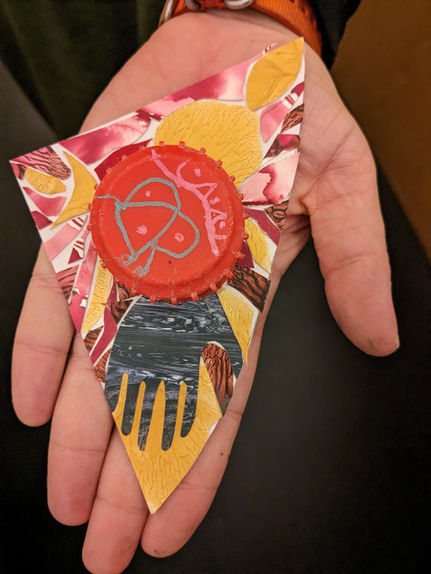
EXPLORING CLIMATE EMOTIONS
2023 Ethics Centre residency, led by researchers Dr Chloe Watfern and Dr Priya Vaughan, who collaborated with researchers, artists and service providers to explore creative approaches to climate distress, and the ethics of care for place, self, and community in the context of ecological crisis.
Eco-anxiety, climate distress, solastalgia… a growing lexicon of terms have entered the popular imagination to describe the kinds of grief, worry, and despair that people are feeling in the face of escalating natural disasters, ecological loss, and government inaction on climate change.
This project aimed to catalyse conversations – small and large, private and public – about how climate change is affecting the innermost thoughts and feelings of our communities.
At its core, we are driven by an ethical proposition: how can we live and act in a way that allows people and planet to flourish? How can social, cultural, and psychological forces be of service (and stand witness) to our ecological selves – the interconnected meshwork that constitutes each person and the ecosystems of which they are fundamentally a part?
During this residency, Chloe Watfern and Priya Vaughan held a series of creative workshops with collaborators, including artists, psychologists, researchers and elders, to explore the ethical dilemmas at the heart of climate distress – from the dimensions of personal responsibility to issues of equity and the exacerbation of new and old social injustices. Participants were asked to share their stories of care by bringing in an object that connected them to community, self, or planetary care in the climate crisis.
Seeking a way to capture and share these memories, our researchers asked for assistance in creating a tentacular creature: part cephalopod, part bird, part plant, part insect, part fungi, part human, part bacteria, part virus, part landscape. The tentacular creation was the perfect creature to hold stories of care, responsibility, hope, and fear in the context of our precarious and precious world. Neither and both human and animal, nature and artifice, Tentacular collapses fictitious binaries that have, historically, enabled the climate crisis to be seen as a problem with ‘nature’, rather than the total phenomenon it is.
Drawing on our conversations with collaborators, Watfern and Vaughan are developing a text (manifesto/guide/essay) that helps situate these dialogues within broader traditions of ecopsychology, environmental art, and public mental health interventions. Tentacular will also be featured in upcoming exhibitions.

Dr. Priya Vaughan with Aunty Rhonda Dixon-Grovenor

Dr. Priya Vaughan making Tentacular














